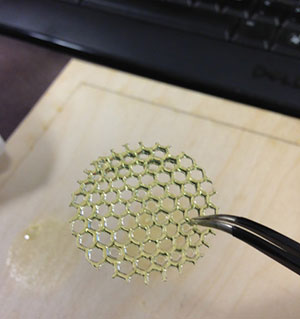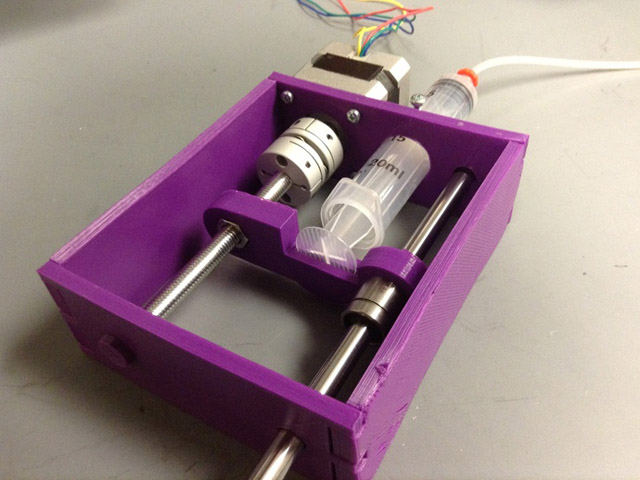As part of a growing trend of “official institutions” embracing DIY culture (see also Chicago Public Library’s Hackspace or DARPA’s partnership with Make Magazine, etc.) Rice University and the RepRap community will be holding their first ever summer fellowship devoted to RepRap 3D printing technology called AMRI: Advanced Manufacturing Research Institute.
The Institute – initiated by core RepRap developer, Jordan Miller, and sponsored by Rice University, Maryland Institute College of Art (MICA), Ultimachine, Ultimaker, MakerGear, and SeeMeCNC – is a month-long pilot program that has four fellows conducting their own research projects using Rice’s 1,000 square foot facility and, as the RepRap blog puts it: “3D Printers, electronics and soldering workstations, laser cutters, milling machines, and most importantly, a healthy research budget.” The goal of AMRI, to again quote the blog, is “to provide breakthrough mentorship, infrastructure, and research funding for promising young makers to pursue their interests using the scientific method.”

This inaugural session features the research of four makers with four very cool projects. Andreas Bastian is exploring the possibilities of open source SLS by, according to Bastian’s tumblr, “systematically quantifying processes and problems to make this technology accessible to further experimentation” and Anderson Ta is building an open source light curing (digital light projection) printer. On the other side of the spectrum, Steve Kelly is experimenting with the improvement of inkjet 3D printing, potentially with the use of modified bacteria. Ravi Sheth is also pursuing the 3D printing of biological cells. There seems to be few details regarding the projects currently available on the internet, but, on August 23, there will be a live stream of the fellows’ presenting their research in Houston.

The fellows, with a good deal of maker knowledge and “little-to-no” bioengineering background, will work alongside Rice University graduate and undergraduate bioengineering students, lacking experience in “making”, with the intention of cross-disciplinary exchange. They will also be under the guidance of an advisory board that includes Makerbot co-found Zach “Hoeken” Smith and will be paid a visit by Josef Prusa, of the RepRap Prusas (“Charmed, I’m sure”), towards the end of the term.
Overall, these fellows are in for a lot of fun that includes working on whatever they want in a great facility with smart people in Texas, during the dessert state’s hottest month. Presumably to make up for this last bit, Rice University has also thrown in a four day crash course in tissue engineering for the four young makers. If the program succeeds in producing viable results, it could be offered again and extended to a three-month program.


